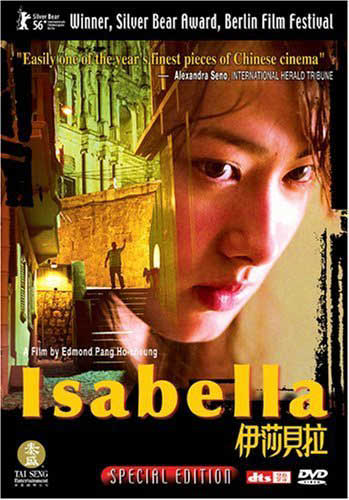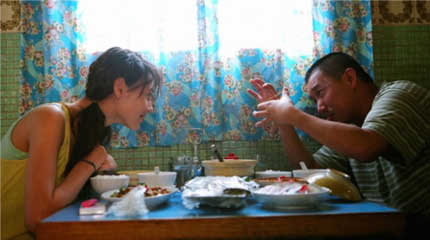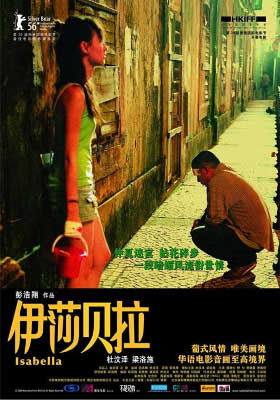


The one obvious criticism that can be aimed at
this work is that it often seems overwhelmingly influenced by the style of
Wong Kar-wai. These influences appear everywhere from the musical choices,
the lighting, the camera angles, the mood and the pacing. Wong Kar-wai casts
a giant creative shadow over Hong Kong and his enormous international stature
must make it difficult for any young director to escape his influence – especially
for those that are attempting to make “serious” artistic films. It feels
that when Pang decided to move in this direction with a more personal story
he turned to Wong as an inspiration – whether intended or not. Even with
this aura wafting through the film though, it still maintains enough of its
own identity with a wry sense of humor, affection for its protagonists and
its gentle humanity.

Pang replaces Wong’s 1960’s Hong Kong with the
old sections of Macau and in similar fashion he uses this backdrop to create
an intimate mood of melancholy, nostalgia and decay. Filming on its winding
narrow cobblestone streets and within decrepit paint peeling apartments,
Pang infuses his sets with various shades of omnipresent greens and natural
light. One night Shing comes face to face with his past when a young girl,
Bik-yan, follows him into a bar and hits him over the head with a bottle.
Thinking that he had slept with and paid for her the previous night, Shing
attempts to silence the underage girl but is truly taken aback when she declares
that she is his daughter from a past relationship and that her mother has
recently died. The guilt he still feels for having long ago abandoned his
girlfriend at the abortion clinic as a teenager comes to the surface and
he takes Bik-yan into his apartment and his life. He is a cop and as he admits
to her not a completely honest one and he may have to soon take a fall. With
the Handover to China looming it is perhaps an opportunity for him (and Macau)
to start over again. As their relationship and affection for one another
grows he starts to examine his life.

With only a skeleton of a plot, this slowly paced and gently told story nearly becomes a mood piece set to music, colors and shadows. Pang injects moments of humor into the film such as Bik-yan putting off all Shing's’s girlfriends with lies and tough talk or him teaching her the proper way to hit someone with a bottle (you need follow through). Both actors – the usually comic Chapman To and the fresh faced and long- legged Isabella Leung – give fine understated performances - something that Pang seems very able to elicit from his actors. Though I believe the film didn’t do nearly as well at the box office as some of his previous work – in particular “Men Suddenly in Black” - I hope Pang continues to push in this direction and that he will eventually establish his own identity.
Viewed at the World Film Festival of Bangkok